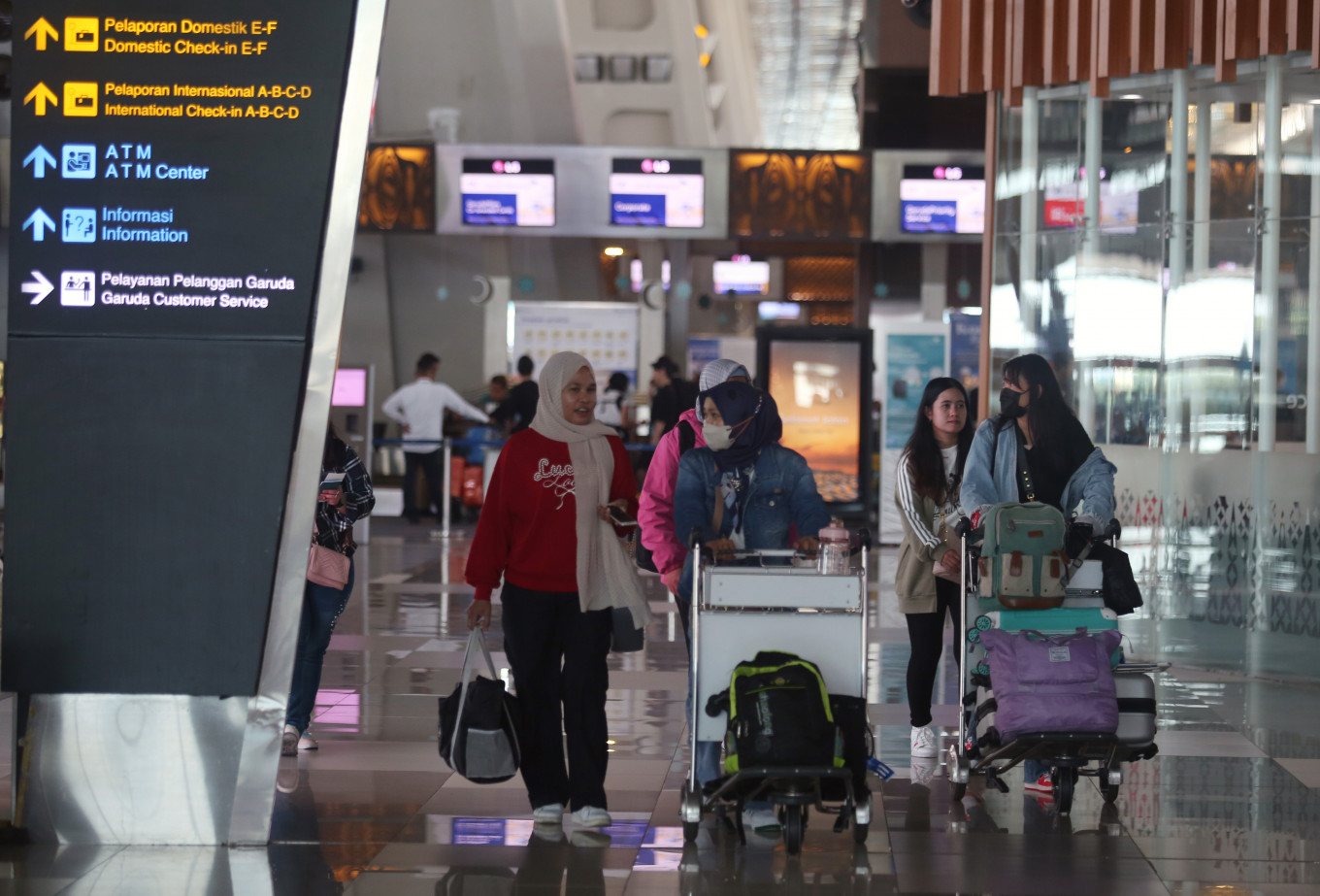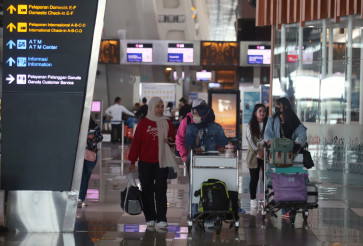Popular Reads
Top Results
Can't find what you're looking for?
View all search resultsPopular Reads
Top Results
Can't find what you're looking for?
View all search resultsIll-advised import restriction policy causes uproar
The government's latest regulatory gaffe related to the new import restrictions for international travelers shows how important it is to consult stakeholders, including the public, experts and experienced staff, before issuing any new rule, let alone implementing it.
Change text size
Gift Premium Articles
to Anyone
T
he chaotic implementation of Trade Ministy Decree No. 36/2023 on import restrictions is another example of how the government often makes and enacts public policies without prior discussion with key stakeholders, notably businesspeople and the public, as well as without considering its officials’ institutional capacity.
One of the main provisions in the policy to cause a public uproar, forcing Trade Minister Zulkifli Hasan to review the regulation, is the one that limits the number and value of items purchased abroad that travelers can bring into the country.
This policy is not new, as many countries do this to protect their economies from the malicious practice of buying goods overseas for reselling locally, thereby avoiding taxes and hurting domestic producers. It is also true that there is a among some travelers who do this on purpose for profit, to the point they advertise themselves as jasa titipan, or jastip for short: individuals that can be commissioned to bring in imported goods.
Not only is this detrimental to the economy, by evading import duties and taxes, it is also unfair to local retailers.
There is nothing wrong with the government trying to curb this type of practice, but many wonder whether such a regulation would be effective or instead create more hassle and confusion, only adding to the huge pile of outdated, useless regulations no longer enforced but never annulled.
Among the newly purchased personal items with per person limits are two pairs of footwear, two handbags and five pieces of clothing.
Asked about the fate of the many souvenirs “imported” by returning migrant workers or pilgrims after performing haj or umrah (minor pilgrimage), minister Zulkifli replied that souvenirs would not be affected by the regulation because they were not intended for resale, and customs officers would know how to determine which items were souvenirs and which were not (i.e., items to be resold).



















